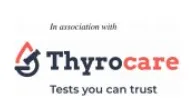About Carcinoembryonic Antigen CEA Test
Are you searching for Carcinoembryonic antigen test? Your search is complete now because you’ve landed on the right platform. AreYouHealthy is offering this test at low rate. And you don’t even need to take headache for the payment. An executive from Thyrocare will come to your place to collect the blood sample; then only you’re required to pay. After the collection process, the sample will be sent to a certified Thyrocare lab. You’ll get the reports on an email.
What Is A Carcinoembryonic Antigen (CEA) Test?
- The carcinoembryonic antigen test measures a protein called CEA in the blood.
- A CEA test is a blood test used to help diagnose and manage certain types of cancers. This test is generally used for cancers of the large intestine and rectum.
- The doctor can also use this test results to help determine if a cancer treatment is working.
- An antigen is a substance that is produced by cancerous tumour cells. Sometimes antigens are released into the blood.
- A high amount of CEA in a person’s body after cancer treatment or surgery suggests the cancer is not gone. Sometimes it may also mean that cancer has spread to other body parts.
- Smoking can increase the amount of CEA in a person’s body.
When Is It Ordered?
The CEA test has many uses. The doctor may use this test as a “marker” to learn more about an individual’s cancer.
The doctor may order a CEA test in case a person is diagnosed with any of these cancers:
- Bladder
- Thyroid
- Stomach
- Breast
- Lung
Doctors don’t use this test to make a first-time diagnosis of cancer.
Preparation For CEA Test
No specialised training is required for this test. Although, the patient should tell the doctor about if the patient: smoke, is pregnant, or takes aspirin or other drugs that might make the patient bleed.
CEA Results Means
- A normal result is less than 5ng/millilitre. The result may vary from lab to lab.
- A higher level of CEA may indicate cancer has grown or has come back after treatment.
- But high CEA does not always mean that you’ve cancer.
There are other conditions also that may increase the levels:
- Ulcers
- Liver disease
- Pancreatitis
- Lung problems
- Infections.
CEA Test Description
- UNITS: ng/ml
- TECHNOLOGY: C.L.I.A
- FASTING TYPE: NON FASTING
- SAMPLE TYPE: SERUM
- VOLUME: 1ml
- NORMAL RANGE: < 5.00 ng/mL

